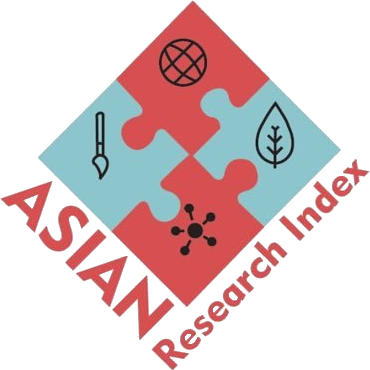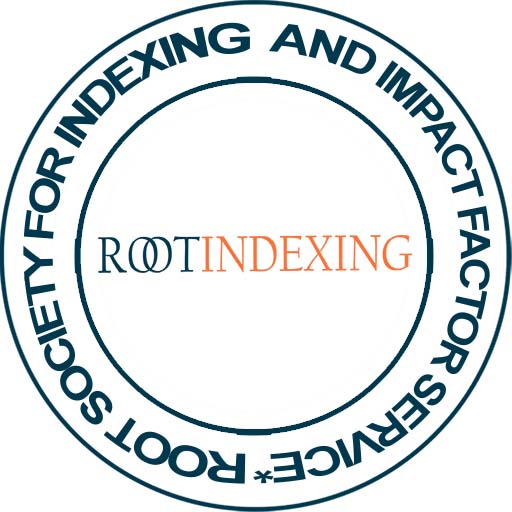SOCIO-JUSTICE: ACTING LIKE A CATALYST IN NURTURING THE INTERFAITH RELATIONSHIPS
DOI:
https://doi.org/10.5281/zenodo.7998724Keywords:
Social Justice, esoteric theory, Practically ImplementedAbstract
This article aims to elucidate that the role of religion is influential in casting notions of social impartiality, despotism, subjugation, and emancipation. It will be explained in this article that according to Islamic teachings, injustice is explained as one of the abysmal forms of evil, that justice and neutrality should not be predicated on a specific group of people, religious belief, race, caste, creed, or faith it should be done with each creation of God. Examples of social justice will also be given from prominent non-revelational religions. Finally, it will be explained that Islam stands as an ambassador religion to safeguard the rights of the entire community and a staunch icon of religion in this interfaith religion’s dialogue. To conclude, it will be justified that the concept of social justice prevails in each religion, whether it is implemented practically or not is another topic of debate, but Social Justice is the need of the hour.
References
- Anees Baig, Social Justice is the key to Social Development of the society, (Zawia blog 12 August 2019).
https://www.independenturdu.com/node/13541/
- Tyler, Tom R and Heather J Smith, Social Justice, and Social Movements, (University of California Berkely: 1995), p 51.
- Cecile Lawrence, and Churn Natalie, Movements in Time Revolution, Social Justice, and Times of Change, Newcastle upon Tyne, (UK: Cambridge Scholars 2012), p xi–xv.
- Ali K, Sexual ethics, and Islam: Feminist Reflections on Quran, Hadith, and Jurisprudence, (Lahore: One World Publications 2006), p 56.
-Abu Nasar Farooq, The Muhammadan version of Economic Prosperity and Social Justice, (Karachi: Roznama Rashtriya Sahara, 26 August 2022).
https://roznamasahara.com/the-muhammadan-version-of-economic-prosperity-and-social-justice/.
- Al Quran 16: 90.
- Gerald Mische and Patricia Mische, Towards a Human World Order: Beyond the National Security straitjacket, (New York: Paulist Press 1977), P 221-234.
-Douglas Johnson and Cynthia Sampson, Religion, the Missing Dimension of Statecraft, (NewYork: Oxford University Press 1994),135-145.
-Gurpreet Brar Singh, and Satnam Singh, the concept of social justice in GuruGranth Sahib, (Published in the abstract of Sikh studies 2011), p 28-33.
(PDF) The Concept of Social Justice in Guru Granth Sahib Published in Abstracts of Sikh Studies (researchgate.net).
-Venerable Narada Mahathera,The Buddha and His Teachings, ( Taiwan:The Corporate Body of the Buddha Educational Foundation, July 1998),p 485.
- Professor John Hinnells, Individual and Social Responsibility, (Blog, Re:online.2017)
https://www.reonline.org.uk/knowledge/zoroastrianism/individual-and-social-responsibility/
-Shakeel Ahmed Sofi and Dr. Fayaz Ahmed Nika, Concept of Social Justice: An Islamic Perspective, (European Journal of Business and Management, 2016), 4th edition, Volume 8.
- Sam Haris, The End of Faith: Religion, Terror and The Future of Reason, (New York: W.W. Norton, 2005), p 301-302.
¬_Levant Tezcan, Religion and Control of Violence, Department of Cultural Studies, (The Netherlands: Tilburg University, 2010), p 178.
-M Deutsch, The Resolution of Conflict: Constructive and Destructive Processes, (New Haven, Conn: Yale University Press, 1973), p 98.
-Firman Mansir, The Study of Socia Justice in Pancasila, Islam, and Hinduism Perspective, (Journal Ilmiah Pendidikan Pancasila Dan KewarGaneGarran: 14 September, 2021), Vol 7.
-Sri Swami Sivananda, All About Hinduism,( India: The Divine Life Society, 1997), p 164.
- Ahmed Abdullah, World Religions, (Lahore: Saadat Art Press, 2002), p 134-135.
-Emad ul Hassan Azad Farooqi, Greater Religions of the World,(Lahore: Maktaba Jadeed Press, 2013), p 22-30.
- Dr Mubarik Ali,Hindusim and Caste System,( Blog: Dastak, 2021).
-John Rawl, A Theory of Justice, (Cambridge: Howard University Press, 1999), p 250.
-Edward Conze, Buddhist Texts Through the Ages, (Oxford: Bruno Cassirer, 1953), p 250.
_Sadia Jawad and Yasir Jawad, The Encylopedia of World Religions, (Lahore: Nigharishat Publishers, 2003), p 110.
_ D.L. Snell Groove, Buddhist Himalaya, (NewYork: Philosophical Library, 1957), p 167.
_Herzfeld Ernst, Zoroaster, and his world, (Princeton University Press, 1946), Vol 2, p 662.
_Mazhar ud din Siddiqui, Islam, and World Religions, (Lahore: Maktaba Jadeed Press, 2014), p 34-40.
_Sheikh Ahmed Deedat, Confucius, Zoroastrianism, and Islam, (Lahore: Mushtaq Book Corner, 2012), p 51-56.
_Prof Dr Tanveer Anjum, Islam, and Social Justice, (Editorial and Opinion Tribune the Express, 2022).
_ Al Quran 4: 135.
_DR Khalid Alvi, Social System of Islam, (Lahore; AL Faisal printing press, 2009), p 130.
_Prof Dr. Hussain Bano, The Business Embassy and Foreign Policy of Prophet Muhammad P.B.U.H, (Islamabad: Seerat Nabi Research Institute, 2018), p 189.

Downloads
Published
How to Cite
License
Copyright (c) 2023 AL MISBAH RESEARCH JOURNAL

This work is licensed under a Creative Commons Attribution 4.0 International License.
AL-MISBAH Research Journal is full open access and licensed under Creative Commons Attribution 4.0 International License; and Published by: Research Institute of Culture & Ideology (REINCI), Islamabad, Pakistan. This allows the research community and the general public to gain unlimited, free and immediate access to scholarly articles, and to reuse the content freely provided that proper attribution is given to the original authors.









